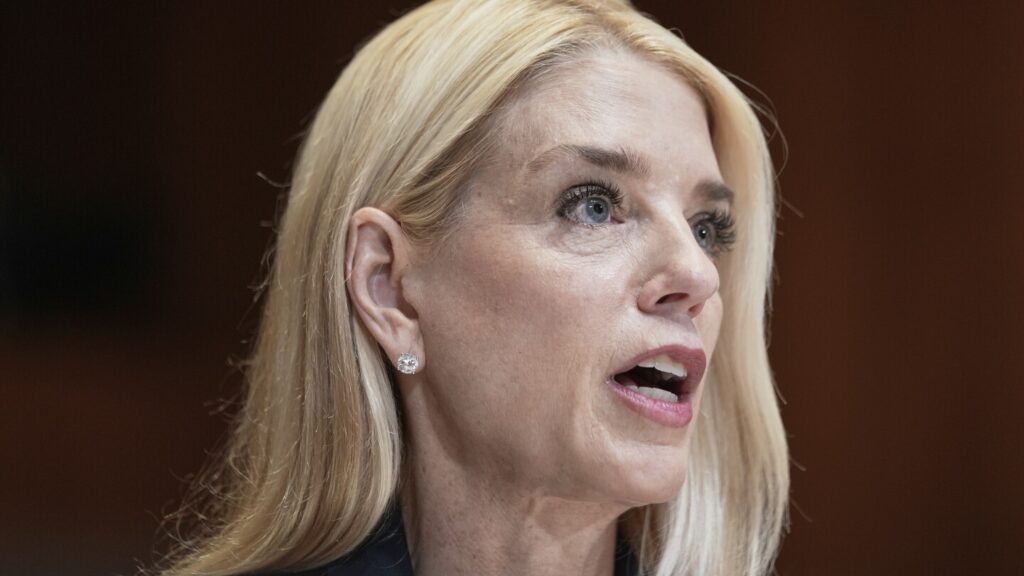
BALTIMORE – In a bold legal maneuver, the Trump administration has initiated a lawsuit against federal judges in Maryland. The suit challenges an order that prevents the immediate expulsion of detained immigrants who seek a court hearing, highlighting the administration’s intensified focus on immigration enforcement and its ongoing clashes with the judiciary.
Breaking: Legal Battle Over Immigration Enforcement
The lawsuit, filed on Tuesday in Baltimore, targets the chief judge of the U.S. District Court in Maryland, George L. Russell III, along with other judges of the court. This legal action underscores the administration’s determination to assert its authority over immigration laws.
The order in question, signed by Chief Judge Russell in May, temporarily halts the deportation of immigrants who have submitted paperwork to the Maryland district court for a review of their detention status. This pause remains effective until 4 p.m. on the second business day after the habeas corpus petition is filed.
Immediate Impact: Administration’s Argument
According to the lawsuit, the Trump administration argues that the automatic suspension of deportations infringes upon a Supreme Court ruling and disrupts the president’s ability to enforce immigration policies.
“Defendants’ automatic injunction issues whether or not the alien needs or seeks emergency relief, whether or not the court has jurisdiction over the alien’s claims, and no matter how frivolous the alien’s claims may be,” the lawsuit states. “And it does so in the immigration context, thus intruding on core Executive Branch powers.”
The plaintiffs in the case are the U.S. government and the U.S. Department of Homeland Security. The Maryland district court has not provided a comment, as confirmed by Chief Deputy Clerk David Ciambruschini.
Key Details Emerge: Ongoing Judicial Clashes
This lawsuit is the latest in a series of confrontations between the Trump administration and federal judges over deportation efforts. Notably, Judge Paula Xinis, one of the defendants, previously deemed the deportation of Kilmar Abrego Garcia to El Salvador illegal, prompting legal action to hold the administration in contempt for ignoring court orders.
On the same day the Maryland court issued its order, a federal judge in Boston accused the White House of violating a court order related to deportations to third countries, involving a flight to South Sudan.
Industry Response: Political and Legal Reactions
Attorney General Pam Bondi has criticized court injunctions that obstruct the president’s agenda, arguing they undermine the democratic process.
“The American people elected President Trump to carry out his policy agenda: this pattern of judicial overreach undermines the democratic process and cannot be allowed to stand,” Bondi stated.
By the Numbers: Impact of Judicial Orders
– The order affects all immigrants filing habeas corpus petitions in Maryland.
– Deportations are paused until 4 p.m. on the second business day post-filing.
What Comes Next: Future Legal Proceedings
The Trump administration has requested that the Maryland judges recuse themselves from the case, advocating for a federal judge from another state to preside over the matter. This move could set a precedent for future immigration-related legal battles.
Background Context: Historical Tensions
The administration’s frequent legal battles with federal judges over immigration policies have been a hallmark of its tenure. These disputes often revolve around the balance of power between the executive branch and the judiciary.
In a whistleblower complaint made public recently, a former Justice Department lawyer alleged that a top official suggested the administration might have to ignore court orders when deporting Venezuelan migrants accused of gang affiliations.
Expert Analysis: Legal Experts Weigh In
Legal analysts suggest that this lawsuit could have significant implications for the separation of powers and the scope of judicial authority in immigration matters. The outcome may influence how future administrations navigate similar challenges.
The timing of this legal action is particularly significant as it coincides with broader discussions on immigration policy and judicial intervention.
As the case unfolds, it will likely attract considerable attention from legal experts, policymakers, and the public, given its potential impact on immigration law enforcement and judicial authority.


